Exponent II's Blog, page 21
June 24, 2025
Guest Post: My Ancestor Refused to Live with Her Sixteen-year-old Sister Wife
Guest Post by Michelle Bulsiewicz
Since I stopped attending the LDS church about a year ago, I’ve occasionally had niggling worries that by doing so I’m betraying my ancestors. I come from solely Mormon pioneer stock on both sides of my family, and I know they sacrificed a lot for their faith.
It brings to mind the time in my teens when I was assigned to give a talk in sacrament meeting about an ancestor. Knowing little about any of them, I read through a collection of family histories my paternal grandmother had put together and was surprised by one story that struck me.
I’d already heard of my third-great-grandfather, Jonathan Hoopes, who shot and killed a solider in a gambling fight in Wyoming in 1881. He then ran away to Arizona and temporarily changed his last name before he was pardoned by a U.S. Marshall for acting in self-defense. What I hadn’t known anything about was his wife, Mary Ann Baldwin, who bore him eleven children as they moved from Utah to Wyoming to the scorching desert of southern Arizona.
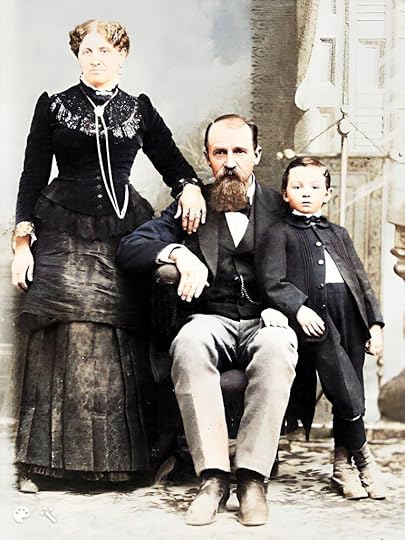 Mary Ann and Jonathan with one of their sons
Mary Ann and Jonathan with one of their sonsThen, in 1888, when Jonathan was 53, he decided to take a second wife, Arthusa Elmer, who was 16 years old. As my grandma told it, this broke Mary Ann’s heart and she never got over it. She separated from Jonathan and never lived with him again. He went to Mexico with Arthusa for a time, and she bore him another seven children.
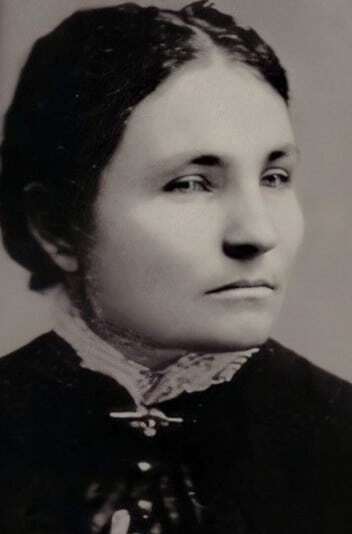 Mary Ann
Mary AnnAs a teenager, I assumed Jonathan would have done wrong in the eyes of the church in this situation. I’d been told that first wives had to sanction any additional wives, so the fact that Jonathan took a second wife despite his first wife’s apparent disapproval meant the church wouldn’t give their blessing either.
But they certainly let him go through with the temple sealing ceremony to Arthusa. The record of it is clear on FamilySearch today. He apparently never lost any standing in the church over his polygamous marriage to a young girl. In fact, there’s evidence men were encouraged to take on plural wives in order to achieve leadership positions in the church. It may have even been my ancestor’s primary motivation for doing so.
The more I’ve read about the topic in recent years, from books such as The Ghost of Eternal Polygamy and Mormon Enigma, the more I’ve seen that woman had little to no choice in these matters. Mary Ann and Arthusa were likely both victims of a situation neither of them would have wanted. Women who refused to accept plural wives or to be a plural wife were often cajoled by their leaders, sometimes even Brigham Young himself, and threatened with eternal condemnation until they agreed. In Doctrine and Covenants 132:64, it says that if any woman does not agree to her husband taking on plural wives, “she shall be destroyed.”
Which just makes Mary Ann’s refusal to accept her husband’s second wife even more impressive. Though the couple remained separated the rest of their lives, sometimes living in separate countries, some descendants say Jonathan continued to support both his families until his death. Most of Mary Ann’s children were adults by the time of their separation, so it’s possible she received support from them as well.
 Mary Ann
Mary AnnDespite this privileged financial situation, I realize now that Mary Ann likely would have been going against what church leaders taught and encouraged her to do. She was born and raised in the LDS church—it was all she knew, and living in Mormon colonies in the nineteenth century, she had very few options outside of it. Still, she didn’t cave to that pressure of a patriarchal church and society, telling her she had to submit to her husband in all things. Instead, she stuck with her convictions. She listened to her personal authority and knew her own worth. She would not accept any less.
Today, I have the privilege of having more liberty and options in my own faith journey, with nothing so horrible as a sixteen-year-old sister wife to challenge it. Still, it’s been hard to question and leave what I was raised with, the heritage of my family for generations. But, when I think of Mary Ann, I wonder if maybe rather than betraying my ancestors, I’m actually fulfilling something she started with her own example of stubborn tenacity. Maybe I just need to look to her to learn how to stand firm in what I know is right for myself, no matter the outside pressures.
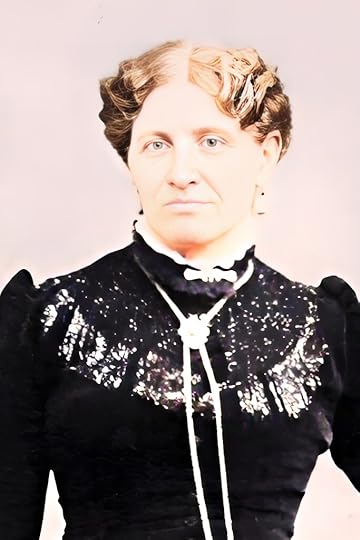 Mary Ann
Mary AnnFormerly an arts and entertainment assistant editor for the Deseret News, Michelle Bulsiewicz now lives in inland Southern California with her husband and two sons. She loves books, yoga, tea, cats, and the beach, and has been known to moonlight at her local Community of Christ congregation.
The LDS Church is Like the Titanic
This month, I travelled to St. John’s, Newfoundland, the closest city to the Titanic Shipwreck. There, I visited a recently opened Titanic and Iceberg Exhibit created by Larry Daley, who has worked as the logistics coordinator for many expeditions to the wreck. He has also spent years studying the ship’s history and collecting artifacts and memorabilia, including replicas of objects on the ship and props used in the 1997 film.
Fifty storyboards displayed the ship’s history and Daley’s insights about into went wrong and why. His observations were pithy and thought-provoking. Partly friends of mine have recently used ship analogies to describe the direction the Church is going, I considered parallels between the Titanic and “The Old Ship Zion.”
Priorities that Neglect Function and SafetyThe Titanic was the brainchild of J. Bruce Ismay, director of the British shipping company White Star Line. American financier J.P. Morgan funded the project, and his establishment International Mercantile Marine Co. controlled White Star Line. Ismay and Morgan were motivated to do what it would take to get ahead of the most successful line, Cunard, and wanted to dominate transatlantic shipping. Ismay dreamed of unusually large and luxurious passenger ships, and Morgan, who was inexperienced in this field, got on board.
While Ismay’s idea of larger, more comfortable ocean liners wasn’t necessarily a bad idea, “the real underlying motives were to crush the competition, establish a monopoly, and dominate the market. Such motives were not in the public interest” and led to major blind spots and mistakes.
Ismay and Morgan prioritized making Titanic impressive to customers. They invested heavily in lavish interior designs and recreational spaces they hoped would lure the wealthy. Daley writes, “No expense was spared. For example, the First Class smoking room had hand carved mahogany woodwork, inlaid with mother-of-pearl, and furniture with splendid dark green leather upholstery.” The second class dining room was as upscale as the first class dining rooms on other ships, and it was one of the first ships to boast a swimming pool.

Above: First class furnishings on the Titanic were palatial and Victorian, not unlike those in the temple (my photo from the exhibit).
Daley writes, “Despite the opulence and extravagance of Titanic’s interior appointments, much cost containment [took] place in other areas of her design.” Ismay and Morgan didn’t invest much in making the ship emergency-ready. While the very bottom was reinforced with two layers, the sides of the ship were protected by only one layer of steel without sufficient reinforcement against perforations. They used the best steel available at the time, but it contained sulphur, which made it brittle in cold temperatures. The watertight compartments were all connected at the top. If one got punctured, they could potentially all flood. Titanic’s designer Thomas Andrews requested to include more lifeboats, but Ismay declined because he was concerned it would disrupt customers’ experience walking on the deck. They used the minimum number legally required. Much of the design was focused on aesthetic effect. For example, an extra, false funnel was added to impress customers and compete with Cunard’s ships. The Titanic was also built with powerful engines that could produce high speeds to get praise from the press; this would prove treacherous when combined with the ship’s relatively slow steering response.

Above: The Titanic while under construction. At the time, it was the largest man made object (public domain on Wikimedia).
While, as Daley explains, “the technology of that period was inadequate to safely make the leap forward to super-size ships” it is also true that Ismay could have done more to investigate what engineering a larger seaworthy ship would require, and to make safety a priority.
The Church’s hefty investment in temples reminds me of White Star Line’s foiblesPres. Nelson’s prioritization of building temples and focusing on temple covenants reminds me of Ismay’s unbalanced priorities. Church administration is building elite lounges atop a hull that is neither agile or seaworthy. During Pres. Nelson’s tenure, the Church has invested more and more of its funds and focus into temples, and shed other things that have traditionally made LDS life more inclusive, relevant and helpful to people. These decisions have exacerbated loneliness and division among members, contributed to the floundering state of the Church’s youth programs, and diminished social connection and belonging. While members struggle to make church relevant on the ground and community programming and supports have become sparse and underfunded, our tithing dollars are paying for yet more and ore stately granite walls and costly custom furnishings, such as chandeliers.

Above: dollar bills recovered from the Titanic (my photo from the exhibit).
Like the Titanic, the temple is built to appeal most to a specific in-group (in Titanic’s case, the wealthy upper class), members who are the most comfortable with and loyal to the institutional Church. These are often those who are the least marginalized or inconvenienced by the Church’s demands, platforms on social and cultural issues, policies and protocols.
Pres. Nelson seems to believe that focusing on what he deems most essential, temple ordinances, will ensure the Church stays relevant in members’ lives. Yet focusing on temple participation at the cost of other things has largely done the opposite. Repetitive General Conference talks, lessons and meetings that are focused on temple worthiness, covenant making, and obedience are currently stifling creativity, intellectual discourse and spiritual growth at church. Temple topics tend to accentuate differences in members’ approaches and their Church-measured inadequacies, heightening divisions and feelings of judgement and being judged. These issues along with the significant decrease in community life are making church less welcoming, helpful, practical, and appealing to many. We’re increasingly bleeding long-time members partly due to the way Nelson has rehauled and redirected our ship.

Above: chandelier replica used in the 1997 film (my photo from the exhibit).
Justifications for the temples’ importance that claim exclusive access to eternal life are akin to Ismay’s and Morgan’s motivations to gain a monopoly. Such teachings, which seek to motivate us to keep temple recommends and worship there, are too invested in competing with other spiritual worldviews, too founded upon claims to exclusive and special access to God and salvation. There is too much of an effort to make LDS temples and doctrines impressive or superior, too little effort to help and protect members. Such teachings seem at heart to be more about keeping tithing flowing and making sure the Church is perceived as unique, irreplaceable and essential to members than they are about helping members grow and thrive in their lives.
This parallels White Star Line’s ill-judged aims to come out on top that led to lost lives and tragedy. In claiming ideological superiority as a core reason to choose an LDS life, we lose some of our young people, to whom this approach has no resonance or benefit. Relentless claims to being the one true faith or the most acceptable to God make for a less safe, less inclusive, more fragile ship, like brittle, thin steel walls that are easily torn by perplexity or disgust at cultural arrogance.
A Slow Rudder and Complacent CaptainsThe design of the Titanic included only one rudder. In Daley’s opinion, ideally, there should have been more and they should have been larger, and this may have prevent the accident. The rudder made the ship slow to steer; the ship actually had a near accident right after it was built. The idea of a large ship relying on a rudder that is too small and not dynamic enough reminds me of the flawed leadership structure of the Church. Changes in direction require the unanimous agreement of fifteen people or the enthusiasm of the president. Many needed changes are slow in coming and too little, too late. The relative homogeneity of the decision-making group means the questions they raise, the inspiration they receive, and the decisions they agree on are biased and limited. Our ship is actually harder to steer than the Titanic, which was reasonably up to the steering standards of its day. Women and community members outside an elite top group don’t get to provide input or help make major decisions. This is not up to today’s standards for ethical and functional religious community life, and it is a hazard for the Church.

Above: the rudder of Titanic’s sister ship the Olympic (public domain on Wikimedia).
Titanic was also the victim of a careless and overconfident captain, Edward Smith, who said: “When anyone asks me how I can best describe my experiences of nearly 40 years at sea, I merely say uneventful. I have never been in an accident of any sort worth talking about…I never saw a wreck and I have never been wrecked.” Concerning the Titanic, he said, “I cannot conceive of any vital disaster happening to this vessel.”

Above: helm replica (my photo from the exhibit).
Like him, LDS leaders struggle with overconfidence, and reluctance to acknowledge problems and blind spots. Smith’s words remind me of Elder Oaks’ recent deflective and defensive message: “Some say the Church is not meeting their needs; [they] substitute what they perceive as their future needs ahead of what the Lord has provided…Humility and trust in the Lord are the remedies for such deviations…Trusting in the Lord is a particular need for all who wrongly measure the commandments of God and the teachings of His prophets against the latest findings and wisdom of man.” Oaks, like Smith, seems to presume a infallibility as a leader. He won’t acknowledge the possibility he is failing and harming others through his decisions.

Above: Captain Smith figurine, right, and 1997 film props
The Titanic received no less than nine telegraphic messages mentioning very icy water and plentiful icebergs. Telegraph technology on ships was new, and the operators weren’t trained to treat warnings with urgency. At one point, an operator responded to an iceberg warning by transmitting, “Shut up, shut up, I am busy.” According to Daley, this particular instance was “the very last chance to reduce speed.”

Above: “Diagram showing the ships which sent Titanic very important ice warnings” (my photo from the exhibit).
Captain Smith was not keen on responding to warnings. Despite receiving the cautionary messages, Captain Smith enjoyed a social dinner and went to bed as usual the night of April 12, 1912. First Officer William Murdoch was left in charge. As the ship approached a large iceberg, he tried to slow the ship and to steer it away from it, but the maneuver was made too late. The ice ripped across the side of the hull into three of the air compartments, which began to spill into the others and to tip the ship. Only two hours and 40 minutes remained before the ship would sink entirely.
Today, Church leaders today have countless opportunities to learn about the insights and experiences of members online, including on this very visible blog. Are they noticing all the input and warnings about what is going wrong in the institutional Church? Why are they going about their engagements, conferences, and temple dedications as if it’s just smooth sailing and successful business as usual?
Three segregated classesThe Church’s teachings about an unequal, tiered afterlife resembles the Titanic’s three segregated sections and social classes. Third class, “telestial,” passengers were placed in the bottom of the ship where they were exposed to a lot of noise and vibration from its immense engines and boilers. Accommodations were very simple; for example, single men were provided with just a straw mattress and a blanket. Iron gates were used to keep third class passengers away from first class spaces. This was in line with Britain’s social norms and certain US immigration laws instituted partly to prevent the spread of disease. Second class passengers, with significantly nicer accommodations, were in the floors above them, and the first class was of course on the top.

Above: Titanic (and Olympic) cutaway diagram (public domain on Wikimedia).
According to Daley, when the Titanic began to flood with water, third class passengers were kept below deck for a while. By the time many of them came up, the life boats were all gone. Only 24.5% of the 1,026 third class passengers survived, as compared to 60.5% of the first class passengers. No one survived who didn’t make it into a lifeboat.
Some Church leaders, including Pres. Nelson, have suggested that the metaphorical lifeboats to obtain eternal life are reserved solely for covenant keeping Latter-day Saints. Speaking of good people who aren’t interested in or adherent to LDS faith and temple covenants, he said:
“[W]hile there is a place for them hereafter…that is not the place where families will be reunited and be given the privilege to live and progress forever. That is not the kingdom where they will experience the fullness of joy—of never-ending progression and happiness.” His interpretation of the three kingdoms places family and friends who aren’t interested in LDS faith in a third class position, with doctrinal iron gates holding them back from blessings, continued relationships, and true salvation. Those of us with doubts or differentiated approaches to the gospel are sometimes treated as if we have contagious diseases or barred from callings and assignments in which we could have spiritual impact. Meanwhile, family and friends who have left the faith are judgmentally used as cautionary tales at church. The temple’s ornate spaces, God’s approval and mansions in the next life are rewards reserved only for those with the “right” beliefs and the right type and level of religious affiliation and loyalty.

Above: Grand staircase on the first class floor, sketch used in a promotional pamphlet (public domain on Wikimedia).
There Weren’t Enough Lifeboats to Begin withIn Nelson’s thinking, only a few lifeboats for humanity are provided. Only a fraction of us will feel good about assenting to all that is required to enter the temple, and only a fraction of this group will retain this status throughout their lifetimes.

Above: sketch of the lowering of the Titanic’s lifeboats (public domain on Wikimedia).
The Titanic was a comparable situation. It had the capacity for 3,547 passengers, and only lifeboat seats for 1,178. If disaster had struck when the ship was at full capacity, 2,369 people would be left to perish assuming the available lifeboats were used optimally.
Inadequate Lifeboat TrainingAs it happened, 500 more lives could have been saved in lifeboats that weren’t filled to capacity, but Titanic’s crew didn’t know how many people could fit safely in each boat. According to Daley, Captain Smith had been lazy about lifeboat training. The crew had had minimal emergency protocol training before departure. A couple days before the ship’s catastrophe, Captain Smith cancelled a lifeboat training for no apparent reason. Largely due to this, lowering the first lifeboat took a whole 40 minutes, and none of the lifeboats were filled to capacity.
Our Church is failing to do the equivalent of crucial lifeboat training, which I would define as anything to helps people stay in and benefit from the faith tradition and community. For example, according to Springtide’s recent research, the most important thing churches today can do to help youth feel motivated to be involved in Church programs is providing accepting, supportive, thoughtful mentoring. What teens and young adults want at church is high quality relationships with role models they can have genuine, open conversations with. That is not the kind of connection the Church is generally offering. However well-intended leaders are, the scenario we offer is usually very sink or swim, submit to indoctrination or don’t belong; check the boxes of the covenant path, or we don’t fully accept you. There is such little space for exploration or to show up as your non-conformist self. In many cases, this is causing youth to consider the Church an unloving, fundamentalist, controlling, or not so intelligent place.

Above: Replicas of the compass and sextant, and a bell used on the Titanic (my photo from the exhibit).
Leaders’ failings have caused a few major, preventable accidents, each time with members lost. One of the recent ones was the moronic decision to implement a policy barring children of same-sex couples from baptism and other ordinances in November 2015. This happened due to having a very senile president and a faulty rudder. LDS presidents are increasingly too powerful and too old, and the Q15 sometimes submit to foolish ideas, much like how they’ve put up with Nelson’s damaging temple-fixated approach. November 2015 was a devastating wreck we’re still living with the negative consequences of. Even just one thick-headed or unkind general conference talk on sensitive social issues is enough to make hundreds or thousands of people leave the community at once.
Families are SeparatedOne of the terrible things about the lifeboat situation was that so many families were suddenly separated. On one side of the ship, only women and children were allowed on the boats, causing forced separation from dads and husbands. On the other side, some men were allowed on when women and children weren’t present. Daley writes, “The panic and huge number of heart-breaking goodbyes must have been dreadful for all 2,200 on board, whether they were escaping or staying behind. Bad enough to witness that scene, but every person on the Titanic was involved in that desperate, personal anguish.”
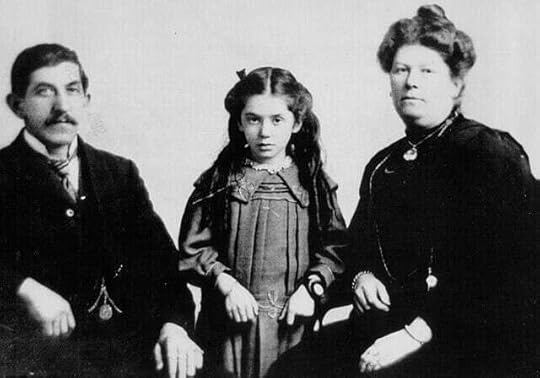
Above: Eva and Esther Hart (center and right) survived the Titanic sinking, but husband/ father Benjamin was left behind to perish (public domain on Wikimedia).
What they endured reminds me of the threat of familial separation in the afterlife. Pres. Nelson taught, “Love songs perpetuate a false hope that love is all you need if you want to be together forever. And some erroneously believe that the Resurrection of Jesus Christ provides a promise that all people will be with their loved ones after death.” According to him, seeing your family after you die is a “higher privilege” earned by those who recognize the Church’s teachings as true through “fervent prayer” and keeping temple covenants.
The temple, the three kingdoms, temple recommend requirements, and covenants serve as separators that foster division and heartache in families. One obvious example is that only those loyal to the Church may attend weddings there, a policy that is unacceptable, even a human rights violation. Cinco Paul recently said: “There’s a horrible irony that in this church that preaches “families are forever,” we sometimes feel unbearable sadness because that teaching leads us to believe that in some cases, they aren’t.”
Lack of Accountability and ReparationsDespite White Star Line’s and Morgan’s immense wealth, according to Daley, they did absolutely nothing to compensate surviving family members for accidentally causing the deaths of loved ones and shattering their lives.
Church administration tends to have traumatized, immature and avoidant responses to its own mistakes and harmful decisions and teachings. It refuses to apologize for past and current missteps or to make amends to marginalized groups and individuals who have suffered spiritual, emotional, and sexual abuse.
A Failed PlanIsmay’s small fleet of big ocean liners flopped overall. Massive luxury liners weren’t quite as alluring or feasible as they thought. Titanic’s first class tickets were the equivalent of $130,000 USD today. According to Daley, on Titanic’s sole, maiden voyage, only 43% of first and second class tickets sold, disappointing the company’s expectations. The Titanic disaster, during which 1,500 lives were lost, weakened trust in White Star Line in the years that followed. Dreams of dominance were abandoned, and the company merged with Cunard.

Above: the Titanic at sea (public domain on Wikimedia).
The current direction does not spell success for the Church. The Old Ship Zion needs both a change of direction and a rehaul of its structures and programs. Like White Star customers after the Titanic’s accident, members are losing trust and interest. The Church needs to work to improve its agility, safety, and inclusivity. We’re facing icy waters with plenty of challenges outside of our deeply flawed authority structures to navigate.
Pres. Nelson seems to think that temple work is the most important task to accomplish before Jesus’s arrival and there’s not really time for anything else. Like the Titanic’s crew and engines, he is speeding full ahead, tying up the Church’s billions in 121 officially announced temples. But prioritizing higher quality, more caring experiences for youth is much more vital to the Church’s survival and flourishing than temples. Who wants their tithing to be used to pay lavish temple decor when very few or none of our own children or grandchildren will be involved enough to attend these edifices in the future? Nelson’s direction makes countless parents and grandparents feel betrayed and indifferent to remaining loyal to the Church.
Imagine an alternative universe in which Jesus arrived tomorrow and mentioned he was a little disappointed the Church didn’t manage build more temples than it did. Perhaps Church leaders would say, “We decided to focus more on the youth, helping them access faith, friends, and better mental health. We also provided the poor and sick with housing, food and medical care, served the elderly, and created loving, united wards that could support and include people all stages of faith.” I think Jesus would say something like “that makes really good sense and was a more loving and reasonable thing to do. Well done, you made the right choice. There is still plenty of time to take care of everything else.”
Pres. Nelson’s and other GAs’ fixation on temples seems to be like a misguided way to distract themselves from unpleasant and complex problems. It’s a hell of a lot easier to deal with dead people who can’t argue with you or tell you they don’t consent to proxy ordinances than to mentor and love teenagers or respond to feedback from angry, jaded grownups.
Rehauling the ShipThe Church should be investing in things like daycare services so that our young members can actually afford to have children, better informed and research-backed curriculum and programs for youth, improving pastoral care and mental health first aid training for leaders, creating curriculums that are more more dynamic and intellectually stimulating that is catered to each age group, and community programming to relieve loneliness, depression, and isolation for members of all ages.
The Church needs to stop trying to motivate loyalty and obedience using fear of family separation and threats of a pseudo state of damnation that supposedly awaits all those who don’t believe it to be true or who don’t make and keep temple covenants. We’re not buying the idea of sad heaven anymore. Far less than one percent of God’s children would reach their potential or receive what God wants for them. The justifications for sad heaven thinking hang heavily on D&C 132, which members increasingly treat as suspect and uninspiring.
In the context of today’s increasingly pluralistic communities, we need to turn toward treating other faith traditions as true equals and partners and acknowledging the important roles mystery and humility play in faith and spiritual growth. A more profound interfaith respect, and bridling arguments that LDS ordinances are relevant due to literal superiority/ divine correctness can help us support a wider diversity of members at various stages of faith and who live in a variety of mixed-faith family and community situations. The gospel should be valuable because it helps us grow, develop, and access experiences with God and the spiritual dimension of life, not because it makes us better or more right than other people, that doesn’t work for many young people today and puts up walls.
To become a mature and accountable institution, the Church needs to learn to listen to member feedback, be humble, and responsible and accountable. It needs to apologize and make amends for mistakes and abuses. Feminists and independent thinking members have been beating this same drams for decades upon decades.
We need leadership structure reform, more diverse captains, and decision making systems that are more inclusive, agile, and responsive to members’ input and needs. We need leaders who listen and care. Since members who give any meaningful feedback are often pushed down to third class behind the iron gates, I don’t know if we’ll ever get the changes we want. It might take an imminent iceberg for them to wake up and do something. I hate to be pessimistic, but sometimes it looks like we’re headed straight for one.
The blog is free to read, but not free to host! Check out our donation page to make a tax-deductible donation.
The icegram testing post
This morning, I went to an appointment with my dentist. I listened to world news on the way. Iran is retaliating. Of course they are. I walked across the parking lot and into the building, taking deep breaths. I walked into the waiting area where there were several people sitting and reading magazines with smiling celebrities on the cover, or watching a movie stream on the large TV screen on the wall. The cheerful receptionist greeted me, and the dental assistant led me down the hall. She asked how I was, and I wanted to say, “Well, I am wondering how I adjust to living in a country where the government no longer fights terrorists. The government is now the terrorist.” But I just say I am doing the best I can.
How is it that people are still going about their day? Why are people going to work, running errands, acting like this is a normal day? This president spent huge amounts of money, against advisors’ information, without any oversight or constitutional process, and bombed another nation. Then he boasted about it and all but dared Iran to retaliate. Then, his loyalist cabinet and legislators changed what they had said only hours before, and expressed support and admiration for actions that put us all at risk, and could lead to another forever war.
Just over a week ago, the military parade this president insisted on having on his birthday, had opened with the playing of “Fortunate Son.” Maybe most of the attendees did not realize the irony, but I think the message from some reluctant military personal was clear.
“Some folks are born made to wave the flag
Hoo, they’re red, white and blue
And when the band plays “Hail to the chief”
Ooh, they point the cannon at you, Lord
It ain’t me, it ain’t me
I ain’t no senator’s son, son
It ain’t me, it ain’t me
I ain’t no furtunate one, no
Some folks are born silver spoon in hand
Lord, don’t they help themselves, Lord?
But when the taxman come to the door
Lord, the house lookin’ like a rummage sale, yeah
It ain’t me, it ain’t me
I ain’t no millionaire’s son, no, no
It ain’t me, it ain’t me
I ain’t no fortunate one, no
Yeah-yeah, some folks inherit star-spangled eyes
Hoo, they send you down to war, Lord
And when you ask ’em, “How much should we give?”
Hoo, they only answer, “More, more, more, more”
It ain’t me, it ain’t me
I ain’t no military son, son, Lord
It ain’t me, it ain’t me
I ain’t no fortunate one, one
It ain’t me, it ain’t me
I ain’t no fortunate one, no, no, no
It ain’t me, it ain’t me
I ain’t no fortunate son, no, no, no…”
I tried to complete the blog post I have been working on, but I can’t do that today. Today can’t be normal.
I don’t find it worthwhile to expend much energy on hate. I try to practice that. But there are two things I hate.
I hate cancer. I have had to constantly recreate my life, my body, my daily new normal, because of cancer. But it has taken from me too many that I love more than my life. I really hate cancer.
And I hate war. People intentionally shooting, bombing, killing children, destroying lands, committing genocide, all over ideology. The ones making the decisions, sending the flesh-shredding explosives and soldiers are never the ones who pay the price. Especially now. These are the ones who will become even more obscenely wealthy, arrogant in their certainty that they are right, and will continue to eliminate anyone who doesn’t agree.
WAR is an acronym for We Are Right. But war does not determine who is right. Only who is left.
This keeps happening. But it can’t be the new normal.
When I first heard the news about the attack, Mike and I were driving home to Salt Lake City from California. We were crossing through the Salt Flats is very high winds. I saw strange patterns of dust and salt rising up from the ground, creating huge, moving silhouettes in the severe winds, all the way to the horizon. As I listened to the reports, I felt I was in a disaster movie, surrounded by CGI special effects, creating monstrous creatures rising from the earth to consume us. But this wasn’t a movie. I couldn’t walk out of the theater and put this behind me. All of the activism, all of the protests, all of the calls and advocacy, had not stopped this.
I refuse to let this be the new normal. It seems as though too many in power are determined to constantly function in reactionary mode. Everything is done in reaction to someone or something they don’t like, don’t agree with, don’t understand. There is no careful or cautious research, or listening to understand. Power and authority is used to deny, remove, and demand submission. Rhetoric is used to demonize any who don’t conform and submit. Loyalists have now taken this on, and are joining in the effort to remove opposition. War is now being waged in the homes of murder victims, by self-appointed soldiers.
I will not allow them to make me default to a reactionary mode. I will not allow someone else’s actions and ideology determine who I am, and how I live. I acknowledge that the actions of others impact me, and harm me. But I have worked too long to become someone who is an agent to act, and not an object to be acted upon.
I am committed to a world where all can live a fulfilled life, all can breathe deeper, and have a say in making a difference in the world.
I realize I am dealing with this in a place of privilege, even in a world where very few can feel secure.
What do I do now?
Two weeks ago, we went and celebrated our daughter’s PhD graduation in California. Every day, I made calls to my Federal and State representatives, with specific information and items of concern. I also emailed them. I limit the concerns to no more than two items per call or letter. There are many to cover.
Then we spent time exploring and hiking through old growth Redwood forests. I focused on fact checking the proposed sale of public lands, made calls and posts about that. I grew up among these giant trees. They still stand because of generations of preservation effort. The need to take action, or be willing to stand in from of bulldozers, is still something to prepare for.
I spend time with my family, and in my garden. I teach my little nieces about growing things, and eating what you grow. I practice what to say when standing up to agents that deny due process.
I make things. I practice art. I write. I gather. I make food and share meals. I listen. I celebrate people who create, in any and every medium. Especially creations with time, space, wisdom, courage, love. I talk with Gods, and often rage at Them. They are there with me, weeping.
I was going to end this here, but I just read a post by Anne Lamott which finds words to describe what I cannot, and offer something more.
“I said to the kitty as we were getting up this morning, “I wish I had better news for you.” I didn’t want to get out of bed, but I had to let the dog out. And I turned on the news: Shock and awe again, same old same old; here we are. possible end of the world, or at the very least, horror. Sigh. Panic. Numbness. Rage. Hopelessness.
So now what? Well, again, same old same old. We do what we’ve always done after unfathomable brutality, from going to war on Iraq to the shootings at Sandy Hook to Uvalde.
After the election last year, feeling complete defeat and fear, I asked myself what I could possibly do to help. After a second cup of coffee, I smote my forehead and remembered I can write.
This morning, feeling complete terror about what bombing Iran will unleash, on what it will be like for America to live in a pariah nation, I dug out some posts I wrote on earlier mornings after, and have cobbled together this inadequate response:
At some point we will get back to marches and registering voters, but today? Today we can unleash waves of love on each other, our families and communities and even our extremely disappointing selves, because love is bigger than any bleak shit and barbarity that the world throws at us. We will have hope again, because of this love, because we always do again, eventually. We have to remember that today. Susan B Anthony’s great niece said in times of horror and hopeless, “We remember to remember.” We remember having come through the apparent end of the world other times, and of having resurrected.
What is helpful right away is to stick together in our horror, grief, anxiety and cluelessness. We cry or shut down, we blame, despair, rage, pray; gather in community, or isolate. I recommend that we do this today. Some of us won’t be able to eat at all, some of us will eat our body weight in ice cream and fries; some of us can’t turn off the TV, some of us can’t turn it on. These are all appropriate. Today we just keep the patient comfortable.
If you don’t know what else to do right do, do love: take a big bag of food over to the local food pantry. Don’t forget Oreos for the kids and Ensure for the elderly. Walk around the neighborhood and wave or hug everyone and pick up litter. My husband Neal said that everything true and beautiful can be discovered in a ten minute walk. Love and beauty are truth.
Talking and sticking together is usually the answer. We become gentler, more patient and kind with each other, and that’s a small miracle. It means something of the spirit is at work. For me, it is grace made visible. It doesn’t come immediately, or by bumper sticker, and it doesn’t come naturally. What comes naturally is rage and blame. Blame R Us. But Grace bats last.
We never gave up on peace and love before, and we won’t now. We’ve always even danced again eventually, with limps. But it’s the “eventually” that feels so defeating. It takes time for life to get itself sorted out. I so hate this and do not agree to this, but have no alternative, because it is Truth: healing and peace will take time. And in the meantime, always always always always, we take care of the poor. This will help you more than anyone else, and put you in Jesus and Buddha’s good graces.
After an appropriate time of being stunned, terrified and in despair, we sigh and help each other back to our feet. Maybe we ask God for help, or Gus, the great universal spirit. We do the next right thing. We buy or cook or serve a bunch of food for the local homeless. We give a few dollars to the vets and mothers begging at busy intersections, no matter our tiny opinions on their hygiene or enterprise. We return phone calls, library books, smiles. We donate money as we are able. We practice radical self-care and say hello gently to everyone, even strange people who scare us. We go to the market and flirt with lonely old people In the express line with their coupons. It can’t be enough but it will be.
I have no answers but do know one last thing that is true: Figure it out is a bad slogan. We won’t be able to. Life is much wilder, complex, heartbreaking, weirder, richer, more insane, awful, beautiful and profound than we were prepared for as children, or that I am comfortable with. The paradox is that in the face of this, we discover that in the smallest moments of taking in beauty, in actively being people of goodness and mercy, we are saved.” By Anne Lamott
May we be the saviors we desperately need.
June 23, 2025
This Can’t Be The New Normal
This morning, I went to an appointment with my dentist. I listened to world news on the way. Iran is retaliating. Of course they are. I walked across the parking lot and into the building, taking deep breaths. I walked into the waiting area where there were several people sitting and reading magazines with smiling celebrities on the cover, or watching a movie stream on the large TV screen on the wall. The cheerful receptionist greeted me, and the dental assistant led me down the hall. She asked how I was, and I wanted to say, “Well, I am wondering how I adjust to living in a country where the government no longer fights terrorists. The government is now the terrorist.” But I just say I am doing the best I can.
How is it that people are still going about their day? Why are people going to work, running errands, acting like this is a normal day? This president spent huge amounts of money, against advisors’ information, without any oversight or constitutional process, and bombed another nation. Then he boasted about it and all but dared Iran to retaliate. Then, his loyalist cabinet and legislators changed what they had said only hours before, and expressed support and admiration for actions that put us all at risk, and could lead to another forever war.
Just over a week ago, the military parade this president insisted on having on his birthday, had opened with the playing of “Fortunate Son.” Maybe most of the attendees did not realize the irony, but I think the message from some reluctant military personal was clear.
“Some folks are born made to wave the flag
Hoo, they’re red, white and blue
And when the band plays “Hail to the chief”
Ooh, they point the cannon at you, Lord
It ain’t me, it ain’t me
I ain’t no senator’s son, son
It ain’t me, it ain’t me
I ain’t no furtunate one, no
Some folks are born silver spoon in hand
Lord, don’t they help themselves, Lord?
But when the taxman come to the door
Lord, the house lookin’ like a rummage sale, yeah
It ain’t me, it ain’t me
I ain’t no millionaire’s son, no, no
It ain’t me, it ain’t me
I ain’t no fortunate one, no
Yeah-yeah, some folks inherit star-spangled eyes
Hoo, they send you down to war, Lord
And when you ask ’em, “How much should we give?”
Hoo, they only answer, “More, more, more, more”
It ain’t me, it ain’t me
I ain’t no military son, son, Lord
It ain’t me, it ain’t me
I ain’t no fortunate one, one
It ain’t me, it ain’t me
I ain’t no fortunate one, no, no, no
It ain’t me, it ain’t me
I ain’t no fortunate son, no, no, no…”
I tried to complete the blog post I have been working on, but I can’t do that today. Today can’t be normal.
I don’t find it worthwhile to expend much energy on hate. I try to practice that. But there are two things I hate.
I hate cancer. I have had to constantly recreate my life, my body, my daily new normal, because of cancer. But it has taken from me too many that I love more than my life. I really hate cancer.
And I hate war. People intentionally shooting, bombing, killing children, destroying lands, committing genocide, all over ideology. The ones making the decisions, sending the flesh-shredding explosives and soldiers are never the ones who pay the price. Especially now. These are the ones who will become even more obscenely wealthy, arrogant in their certainty that they are right, and will continue to eliminate anyone who doesn’t agree.
WAR is an acronym for We Are Right. But war does not determine who is right. Only who is left.
This keeps happening. But it can’t be the new normal.
When I first heard the news about the attack, Mike and I were driving home to Salt Lake City from California. We were crossing through the Salt Flats is very high winds. I saw strange patterns of dust and salt rising up from the ground, creating huge, moving silhouettes in the severe winds, all the way to the horizon. As I listened to the reports, I felt I was in a disaster movie, surrounded by CGI special effects, creating monstrous creatures rising from the earth to consume us. But this wasn’t a movie. I couldn’t walk out of the theater and put this behind me. All of the activism, all of the protests, all of the calls and advocacy, had not stopped this.
I refuse to let this be the new normal. It seems as though too many in power are determined to constantly function in reactionary mode. Everything is done in reaction to someone or something they don’t like, don’t agree with, don’t understand. There is no careful or cautious research, or listening to understand. Power and authority is used to deny, remove, and demand submission. Rhetoric is used to demonize any who don’t conform and submit. Loyalists have now taken this on, and are joining in the effort to remove opposition. War is now being waged in the homes of murder victims, by self-appointed soldiers.
I will not allow them to make me default to a reactionary mode. I will not allow someone else’s actions and ideology determine who I am, and how I live. I acknowledge that the actions of others impact me, and harm me. But I have worked too long to become someone who is an agent to act, and not an object to be acted upon.
I am committed to a world where all can live a fulfilled life, all can breathe deeper, and have a say in making a difference in the world.
I realize I am dealing with this in a place of privilege, even in a world where very few can feel secure.
What do I do now?
Two weeks ago, we went and celebrated our daughter’s PhD graduation in California. Every day, I made calls to my Federal and State representatives, with specific information and items of concern. I also emailed them. I limit the concerns to no more than two items per call or letter. There are many to cover.
Then we spent time exploring and hiking through old growth Redwood forests. I focused on fact checking the proposed sale of public lands, made calls and posts about that. I grew up among these giant trees. They still stand because of generations of preservation effort. The need to take action, or be willing to stand in from of bulldozers, is still something to prepare for.
I spend time with my family, and in my garden. I teach my little nieces about growing things, and eating what you grow. I practice what to say when standing up to agents that deny due process.
I make things. I practice art. I write. I gather. I make food and share meals. I listen. I celebrate people who create, in any and every medium. Especially creations with time, space, wisdom, courage, love. I talk with Gods, and often rage at Them. They are there with me, weeping.
I was going to end this here, but I just read a post by Anne Lamott which finds words to describe what I cannot, and offer something more.
“I said to the kitty as we were getting up this morning, “I wish I had better news for you.” I didn’t want to get out of bed, but I had to let the dog out. And I turned on the news: Shock and awe again, same old same old; here we are. possible end of the world, or at the very least, horror. Sigh. Panic. Numbness. Rage. Hopelessness.
So now what? Well, again, same old same old. We do what we’ve always done after unfathomable brutality, from going to war on Iraq to the shootings at Sandy Hook to Uvalde.
After the election last year, feeling complete defeat and fear, I asked myself what I could possibly do to help. After a second cup of coffee, I smote my forehead and remembered I can write.
This morning, feeling complete terror about what bombing Iran will unleash, on what it will be like for America to live in a pariah nation, I dug out some posts I wrote on earlier mornings after, and have cobbled together this inadequate response:
At some point we will get back to marches and registering voters, but today? Today we can unleash waves of love on each other, our families and communities and even our extremely disappointing selves, because love is bigger than any bleak shit and barbarity that the world throws at us. We will have hope again, because of this love, because we always do again, eventually. We have to remember that today. Susan B Anthony’s great niece said in times of horror and hopeless, “We remember to remember.” We remember having come through the apparent end of the world other times, and of having resurrected.
What is helpful right away is to stick together in our horror, grief, anxiety and cluelessness. We cry or shut down, we blame, despair, rage, pray; gather in community, or isolate. I recommend that we do this today. Some of us won’t be able to eat at all, some of us will eat our body weight in ice cream and fries; some of us can’t turn off the TV, some of us can’t turn it on. These are all appropriate. Today we just keep the patient comfortable.
If you don’t know what else to do right do, do love: take a big bag of food over to the local food pantry. Don’t forget Oreos for the kids and Ensure for the elderly. Walk around the neighborhood and wave or hug everyone and pick up litter. My husband Neal said that everything true and beautiful can be discovered in a ten minute walk. Love and beauty are truth.
Talking and sticking together is usually the answer. We become gentler, more patient and kind with each other, and that’s a small miracle. It means something of the spirit is at work. For me, it is grace made visible. It doesn’t come immediately, or by bumper sticker, and it doesn’t come naturally. What comes naturally is rage and blame. Blame R Us. But Grace bats last.
We never gave up on peace and love before, and we won’t now. We’ve always even danced again eventually, with limps. But it’s the “eventually” that feels so defeating. It takes time for life to get itself sorted out. I so hate this and do not agree to this, but have no alternative, because it is Truth: healing and peace will take time. And in the meantime, always always always always, we take care of the poor. This will help you more than anyone else, and put you in Jesus and Buddha’s good graces.
After an appropriate time of being stunned, terrified and in despair, we sigh and help each other back to our feet. Maybe we ask God for help, or Gus, the great universal spirit. We do the next right thing. We buy or cook or serve a bunch of food for the local homeless. We give a few dollars to the vets and mothers begging at busy intersections, no matter our tiny opinions on their hygiene or enterprise. We return phone calls, library books, smiles. We donate money as we are able. We practice radical self-care and say hello gently to everyone, even strange people who scare us. We go to the market and flirt with lonely old people In the express line with their coupons. It can’t be enough but it will be.
I have no answers but do know one last thing that is true: Figure it out is a bad slogan. We won’t be able to. Life is much wilder, complex, heartbreaking, weirder, richer, more insane, awful, beautiful and profound than we were prepared for as children, or that I am comfortable with. The paradox is that in the face of this, we discover that in the smallest moments of taking in beauty, in actively being people of goodness and mercy, we are saved.” By Anne Lamott
May we be the saviors we desperately need.
June 22, 2025
Guest Post: Why Mike Lee’s Lack of Apology is Inherently and Unfortunately So Mormon
Guest Post by Emily Peterson
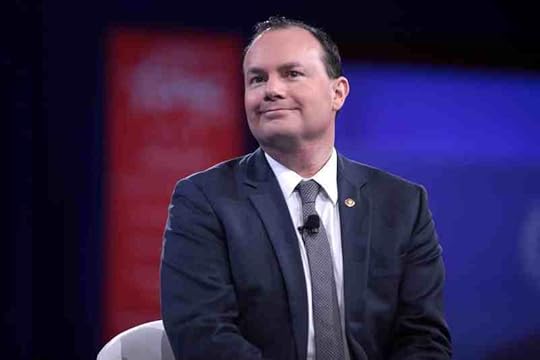
I was never a fan of Mike Lee, but like many Mormons and non-Mormons alike, I have been appalled by his flippant reaction to the assassination of Representative Melissa Hortman of Minnesota. While my instincts are to claim that Mike Lee’s inability to apologize is not representative of Mormonism, I do see ways that this sort of behavior has been enabled and modeled by the Church’s culture and its leaders.
While Lee is being called to apologize, he has failed to acknowledge the harm his Tweets have caused. He issued a more serious statement condemning the violence later on, eventually taking down his initial posts, but has still failed to express a legitimate apology for the harm his actions caused. I see this and think of the Church’s own behavior towards some of its own past bad behavior.
The Church notoriously never apologizes for any of its past behavior, teachings, or statements. It’s behavior towards the history of the priesthood and temple ban alone is utterly lacking. Like JD Vance’s defense in debates over attacks on the Capitol on January 6th, President Oaks seems to only be “focused on the future.” During the celebration of the 40th anniversary of the priesthood and temple ban, for example, Dallin H. Oaks asserted that while some “have wanted to look back” at the painful impacts of the policy, “most in the Church, including its senior leadership, have concentrated on the opportunities of the future rather than the disappointments of the past.” When another white man published a fake apology for the policy in 2018, he re-traumatized many Black members who felt whiplash from the initial feelings of finally getting an apology to the crushing disappointment when it was realized that it was a joke. (This white man, an Ex-Mormon, however, did eventually apologize).
The closest thing to a formal apology from the Church has been the expression of “regret” shared by President Henry B. Eyring on behalf of the Church at the 150th Anniversary of the Mountain Meadows Massacre. While earnest and helpful, however, this sort of language does not adequately do enough to prompt the needed acknowledgement for things to move on. The scriptures do not call for those who do harm to others to “regret,” they demand full repentance.
While some might argue that it is not part of religious institutions to apologize, other traditions offer a glimpse of what is possible. Though apologies alone can be performative and lacking, they are an initial step in the right direction. Pope Francis issued an apology to Indigenous people in Canada for the Catholic church’s role in boarding schools. Even the Southern Baptist Church apologized for its early support of enslavement and segregation. While these apologies obviously do not mean that more action is needed from these parties, they demonstrate how such apologies can be done.
The unfortunate current nature of leadership within the Church fails to hold the always male and often white leaders accountable for poor behavior. Even its lay male members are often excused and enabled to claim no fault when their actions cause meaningful harm. Instead, the burden is placed on those harmed to simply choose not to be offended.
This experience reminded me of an experience I had in my childhood ward in New Jersey. A small ward, I generally have good memories of the ward family that raised me. However, on one particular Sunday, a male transplant from Utah spoke at the pulpit and regurgitated horrendous teachings from Ezra Taft Benson’s apostleship, accusing the Progressives of being Communist infiltrators and asserting that women leaving the home was a central part of Satan’s plan. I was shocked. Growing up in the church, I’d seen instances where Bishops would give nudges or say a few words at the end of the meeting to comment or clarify doctrine, and surely this was an ideal opportunity to do so.This man’s words, however, seemed to cause no unease to the Bishop, who sat idly by and closed the meeting without any further comment about the incredibly harmful remarks. When my Dad approached him after the meeting and asked why he didn’t say anything, the Bishop simply shrugged and shared that it was simply just like the MTC of the mission field, people just say things sometimes and there was no reason to apologize for it.
As a Church, we time and time again fail to keep men accountable for their actions, especially those in positions of power. This can enable poor behavior outside of Church settings, as demonstrated by Lee. If we fail both as a culture and as an institution to promote a culture of openly apologizing, we will only see more of this behavior from LDS men.
Emily is a public historian and graduate student at the University of Maryland-Baltimore County studying history, including the history of Mormon feminism. She currently lives in Baltimore, Maryland, with her husband.
Sacred Music Sunday – Another Batch of New Hymns

The church recently released the fourth batch of hymns from the new hymnal. In the previous releases, I was familiar with nearly half of the hymns. This batch is much less familiar to me. I haven’t done a deep dive to see if I know the songs by other names, but off the top of my head, the only one I know is Still, Still, Still. I’m looking forward to getting to know the new hymns.
What have been your favorites so far? Of the hymns that I was already familiar with, I think my two favorites are Come, Thou Fount of Every Blessing and Hail the Day that Sees Him Rise. Of the ones that are new to me, I think my favorite is Bread of Life, Living Water.
I have a few others on my wish list that I hope get added in future batches. I would love to see I Heard the Voice of Jesus Say (which shares a tune with If You Could Hie to Kolob), and Love Divine, All Loves Excelling (which shares a tune with In Humility, Our Savior). What’s on your wish list?
June 21, 2025
The LDS Church Should Invest More of their Billions in Women
The Salt Lake Tribune recently reported on the investment portfolio of the LDS Church, putting it at a staggering $56.2 billion. This is, of course, just a portion of the LDS Church’s overall wealth of something like $200 billion. This type of news makes for some interesting conversation, both in support of h̶o̶a̶r̶d̶i̶n̶g̶ /saving large sums of money and against it. One thing seems abundantly clear when looking at how the LDS church manages and spends money overall, however: women are not included in the room where decision-making is happening.
Two phrases always come to the top of my mind when I hear these mind-blowing sums and think of the expectations put on women by the LDS Church: professional cleaning services and paid child care services.
Exponent II enjoys sharing evergreen content on our social media, so I immediately recalled some of my early posts for this site: Normalize Paid Childcare for LDS Services and Activities from 2021 and It’s Time for the LDS Church to Hire Janitors Again from 2022. In March, our amazing Exponent II Instagram maven, Abby Maxwell Hansen, has shared these on Instagram and Facebook. The feedback on these topics has remained fairly consistent. The anger about the lack of cleanliness in buildings and general feeling that this spiritual experience/experiment has run its course has most definitely increased.
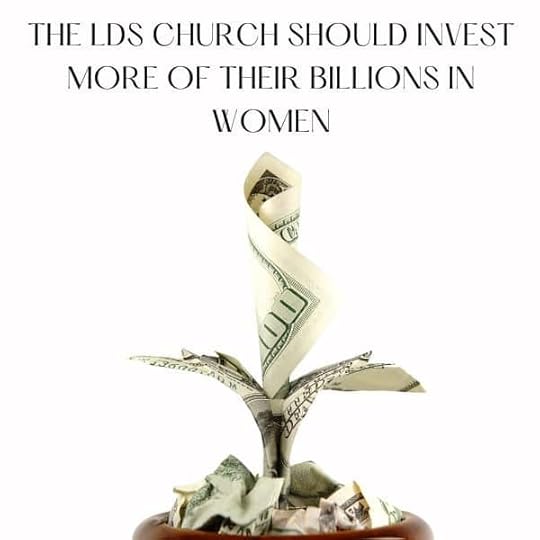
My family is growing older now and I no longer wrestle little ones during sacrament meetings, but I still fret when leaders are lackadaisical about two-deep leadership, non-trained individuals working so closely with kids of differing needs, and the general feeling that young women should provide unpaid labor as service. I also feel deeply for the mothers in the trenches wrestling kids, leaving sacrament to nurse babies, and spending their Sundays doing more unpaid childcare in Primary callings. Plus, women reach the empty-nester stage, only to be called-in to share their expertise with children once again.
I stopped cleaning the church building a long time ago and I’m not too thrilled to see my family trudge off to clean the church when they don’t consistently complete chores at home first. I could tell you a not-so-funny story about a troubling sign our women’s bathroom was never getting cleaned (or at least cleaned well) for at least a month. Plus, stories about mold and ants in church buildings make me wonder how clean any of the buildings are.
One thing I do know for certain: The LDS Church should invest more of their billions in women. And they can do so in concrete ways that will enhance spiritual opportunities for women, allow them to leave their children without worrying, offer them interruption-free spiritual learning, and provide more uninterrupted family time.
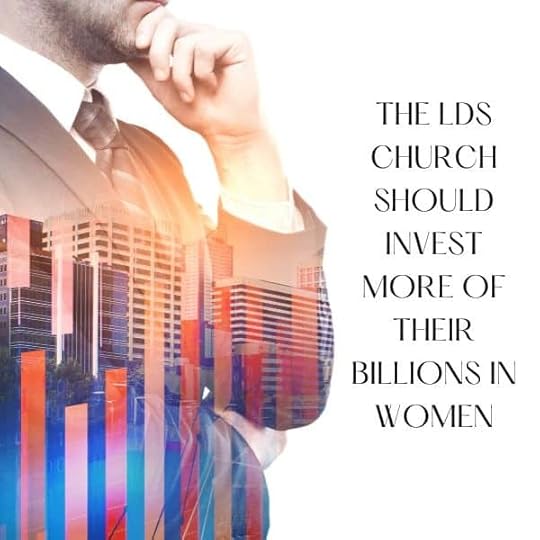
These investments should include:
Paid, professional janitors to deep clean buildings (members would still pick up after themselves, wipe down things, take out trash, etc)Fully equipped nursing rooms entirely separate from the bathrooms for women and children who need or prefer privacy and quietFully equipped family care rooms for all caretakers to utilizeA clear policy that invites mothers to nurse whenever, wherever, and however they choosePaid childcare staff during sacrament meetings, with space, resources, tools, and training to create a positive experience.Paid childcare staff during additional meetings and activities, with space, resources, tools, and training to create a positive experience.Consider the balance of childcare/family time when creating meeting schedules, with women’s commitments, needs, and interests given the same priority-level as men’sProfessional training for primary leaders on working with children, including children with special needsProfessional background checks for everyone who works with childrenProfessional training for Bishops and other leaders to counsel and work with those experiencing or overcoming abuseUpdated buildings that include classrooms built to support a two-deep teaching model and better accommodations for children with special needsUpdated buildings that include space and technology to support continuing educationRealistic, meaningful, and equal teaching and activity budgets that do not require members to supplement with their own moneyWelfare assistance that keeps up with the times and can realistically help with managing unemployment systems, applying for assistance, and navigating social services, while offering immediate, compassionate helpOh – and this cost nothing – but Pass those missionary meal calendars and pott-luck sign-ups around to men and make it clear that they are expected to contribute meaningfullyThis, of course, is just a monetary list focused on how to support active LDS women financially. The list on how the LDS Church can invest in women doesn’t end here. What would you add?
June 20, 2025
I Used To Work The Streets: How 2nd Amendment Rights Almost Killed My Partner and Me.
A call came on the radio from Dispatch to my ambulance: “32 Delta”.
This means an unknown person is on the ground and unconscious. “Delta” means, this is severe enough to also dispatch the Police and Fire Department along with us, the ambulance.
We pulled up to one of the many “one step up from a homeless shelter” apartments that fill Salt Lake City. I’ve been to this place before many times on the exact same type of call. “Man down,” usually blitzed on drugs.
The Police led the way in front of my partner and me and made contact with the patient first. The Fire Department hadn’t arrived yet. He was lying in the middle of a public stairway. One officer pulled a needle from the sleeping man’s arm as they spoke loudly to wake him.
“ARE YOU OKAY? CAN THESE EMT’S CHECK YOUR VITALS AND MAKE SURE YOU ARE ALRIGHT?!”
The man came to and gave his consent. My partner and I approached and started checking his blood pressure, pulse, oxygen levels, and cognitive awareness.
“Do you know where you are?”
No response.
“Do you know what city we are in?”
Wrong answer.
“What day is it?”
Wrong answer.
“Who is the current President?”
Wong answer…but to be honest we joked that many cognitive, non drug users, did not know this answer. People were legitimately confused who the president was and we could not reliably use this question (answer at the time…Biden).
“We are going to take you to the hospital to get you some more help! Okay?!” It was protocol, we had to.
He shook his head “yes”.
As we were helping the man up, the Fire Department walked in. We all agreed which hospital to go to and meet up at. Fire led the way out the hall, followed by my partner walking next to our patient, then me carrying our large bag of supplies, followed by two officers behind me. We have done this countless times before. This is our most common type of call on the ambulance.
As we walked the long hallway, I noticed the patient lifting his arms up, but before I could think further about what was happening, I was forcefully pushed to the side as the officers ran past me. They grabbed the patient and pulled a gun from his hand, throwing it on the floor at my feet. I looked down at the gun, then up at my partner. She stared back at me.
Stunned.
The police had our patient pinned against the wall and started cuffing his hands behind his back. My partner quickly tells me that she felt the patient’s hand try to circle her neck.
He was trying to headlock her and point a gun to her head.
We immediately left the building with the Fire Department and discussed what just took place on the front lawn, leaving the cops to deal with the patient, turned perpetrator inside.
(Note: Patients are routinely patted down for weapons on these types of calls. Because of our familiarity with this type of call, we unfortunately skipped this part. We of course regretted this failure).
***
Not too many weeks later, I was volunteering with my husband to clean one of Utah’s large, Church owned, Young Women’s camps. As the volunteers were standing around, eating our free breakfast, waiting for instructions, I talked to a member of my ward.
He, for some reason, thought I would be interested in hearing about his efforts in acquiring a large stockpile of firearms and ammunition. He stared at me straight into my eyes as if to challenge me. Proud of his 2nd amendment rights.
My gut churched with difficult emotions of feeling threatened and memories of almost losing my partner or getting hurt myself.
“Looks like you can kill a lot of animals to feed your neighbors.”
I turned to find someone else to engage.
***
A year later, I had Ken Ivory, my local State Representative, on my front porch telling me why he voted for teachers to have guns in the classroom, at the time time he also voted to repeal the carry and conceal permit (meaning you don’t have to have a permit to hide your gun) along with other firearm safety laws that Utah got rid of, making it easier for anyone to carry and use a gun. “You just have to have the right type of person use their 2nd amendment rights”, was his angle. However…he doesn’t really get to decide who those people are with the way he and the majority of the other lawmakers voted.
I explained to him that a year previously, my child had a teacher with anger management issues. I would not want her to have a gun in the classroom. He took that ability to keep my child safe away from me…just in a different way.
Not everything is black and white. We swim in the gray.
However the paradox of morals surrounding who lives are more important and when they are more important is disturbing.
For example, Mike Lee, another Utah lawmaker (this time at the Federal level) has recently been cavalierly spouting how he feels about other people’s lives that do not aline with him politically.
He doesn’t care..he tweets that they deserved it.
This man claims to be “pro life”. This man claims to follow Jesus and be a member of God’s “only true Church.”
Here are some gun facts to sit with…unfortunately, this will not be surprising.
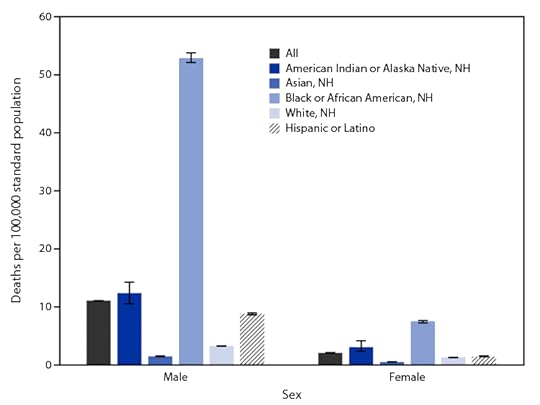
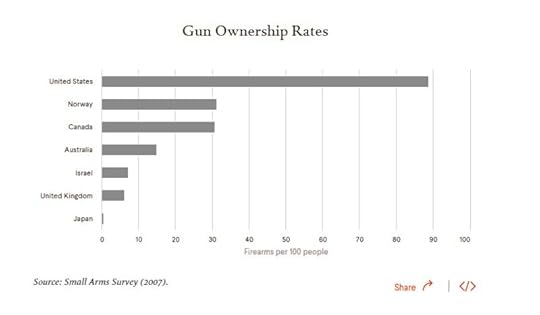
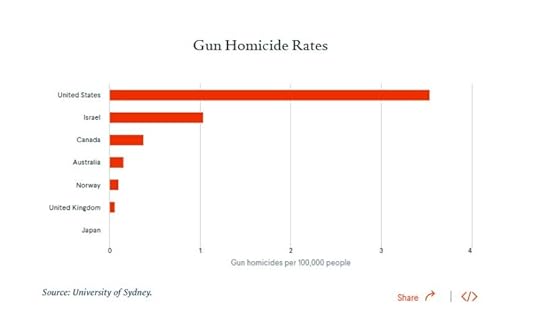
I Used to Work The Streets Part One
I Used to Work The Streets Part Two
Where your state ranks on firearm safety laws.
When our Mormon Ancestors participated in genocide of the Timpanogos Natives of Utah
*
June 19, 2025
Guest Post: Recommendations to President Nelson for Preventing Child Abuse
Guest post by Elizabeth Richins. On April 7, 2025 Elizabeth shared her story with Exponent II readers in a guest post titled “Sexual Abuse in the Church.” This is a follow up post containing a letter she sent to President Nelson.
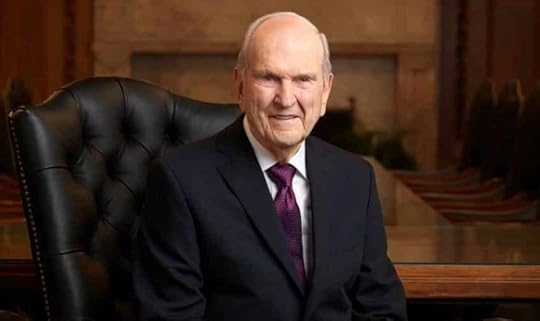
Dear President Nelson,
I come to you with a heavy but hopeful heart. I am writing not just as a survivor of abuse but as a mother, a disciple of Jesus Christ, and a lifelong member of this Church who deeply believes in its power for good. I was sexually abused by my bishop. He was a man who was supposed to represent Christ. The abuse I endured began in childhood, and its effects have reverberated through every aspect of my life: my faith, my mental health, my family, and my ability to trust.
While I understand that no institution is perfect, I believe with conviction that more can and must be done to protect the most vulnerable among us. My purpose in writing is to plead for essential safeguards within the Church to prevent others from enduring what I went through.
Specifically, I ask that the Church consider implementing the following changes:
1. Mandatory background checks for all clergy and youth leaders, including bishops and counselors.
Many countries already require this by law. Backgrounding those who are placed in positions of trust—especially over children—should be a global standard in a Church that spans the globe.
2. A formal policy that permanently bars any individual with a history of sexual abuse allegations, battery, or similar offenses from serving in callings with children or youth.
Even a single accusation should be taken seriously. Leaders can serve elsewhere if repentance has occurred, but our children should never be the testing ground for someone’s reformation.
3. Independent reporting and oversight mechanisms.
Victims should be able to report abuse outside of local leadership. Bishops, no matter how well-meaning, are not trained investigators, and too often, abuse is minimized or covered up—intentionally or not.
4. Healing support and acknowledgment for survivors within the Church.
The spiritual damage caused by abuse—especially by a bishop—runs deep. It fractures a person’s relationship with God, trust in priesthood authority, and sense of divine worth. When the abuse is cloaked in spiritual language or justified as part of a divine calling, the confusion and betrayal can feel eternal.
When I finally built up the strength to tell my parents about the abuse I had endured as a child, my father went directly to our then-bishop, Bishop Hansen, to report it. What he didn’t know was that Bishop Hansen already had firsthand knowledge of the abuse. More than a year earlier, he had walked into the Primary room and witnessed my body and mind being violated—yet he did nothing.
When my father brought the abuse to his attention, Bishop Hansen responded, “I cannot turn him in. I love him.” Not only did he refuse to report the abuse, he failed to protect me—and allowed the abuser to continue unchecked. When the allegations eventually surfaced, rather than receiving support, I became the target. My ward turned against me. The isolation and betrayal I experienced from my Church community compounded the trauma I was already carrying.
Though many years have passed, the emotional and psychological wounds from that time are still very present. The abandonment I felt—by leaders, by members, by the institution I had been taught to trust—shook the foundation of my faith and my identity.
If I could add a fifth change to the list I previously shared, it would be this: that when abuse is disclosed, a General Authority—preferably an apostle or even a prophet—be sent to the affected ward to stand with the victim. If the Church had stood beside me back then, publicly and spiritually, I would not have felt so completely alone. That kind of visible, authoritative support would send a clear message to both the victim and the community: that God is with the wounded, and so is His Church.
I’ve struggled for years with guilt, shame, disillusionment, and loss of faith. I wonder what my life, my testimony, my mental health might have looked like if stronger protections had existed—if someone had seen me, listened, or believed me earlier. I wonder how many others are still silently suffering within our congregations today.
President Nelson, I believe in the Savior’s ability to heal, but I also believe He expects us to act. I know that you care for the welfare of the Saints across the earth, and I trust that you are seeking divine guidance in all things. I implore you and Church leadership to consider these changes—not out of fear or anger, but out of love, accountability, and our sacred duty to “succor the weak, lift up the hands which hang down, and strengthen the feeble knees.”
Thank you for your time, your service, and for hearing my voice. My hope is that the pain I carry might become part of the catalyst for change that protects generations to come.
With hope and respect,
Elizabeth Richins
Elizabeth is a mom of six boys, a wife, an advocate, a social worker, and a survivor.

June 18, 2025
Denying Joseph’s Polygamy is Rape Apologetics
Joseph Smith was a polygamist. Period. End of sentence.
Plural marriage was introduced to the Latter-day Saint church and community by Joseph Smith during his lifetime. However, there is an increasingly vocal minority that refuses to acknowledge this, instead building a vast conspiracy and denial of historical and textual evidence to claim that Joseph fought polygamy, was killed for it, and that Brigham Young actually started the practice. I’m not going to use this article to break down any arguments as I know the history is sound and arguing with conspiracy theorists is a waste of time. Instead, I want to focus on why defending this conspiracy actively harms women and perpetuates rape culture. In order to deny that Joseph Smith instituted and practiced plural marriage, not only must we deny history, we must erase and throw out real women’s lived experiences and testimonies.
When we deny Joseph’s involvement in plural marriage, we’re doing the same terrible thing that polygamy itself does: reducing women to objects that can be ignored and defined as only pawns of powerful men. We’re making men’s image and reputation more important than women’s lives. Polygamy denial is actively engaging in rape apologetics in order to save and prop up patriarchal individuals and structures that allow men to harass, exploit, and rape women with impunity.
I understand the desire to absolve Joseph of this crime. As I’ve written before, polygamy is an abusive system and not from God. I can understand feeling cognitive dissonance around growing up with this larger-than-life figure that you revere as the founder of your faith, only to find out later that he did horrible things to women. Just like the JFK assassination, our brains don’t want to believe that a superhuman like Joseph Smith could be so sadly flawed and suffer such an ignominious death. We want to assign a larger conspiracy to it because it helps us feel more in control of a chaotic world that doesn’t line up with our reasoning. But as with all conspiracies, the simplest answer is usually the correct one and its better to deal with the dissonance rather than close ourselves off into a falsehood just to make us feel better. It’s okay to admit and accept that Joseph manipulated, lied, and exploited people, especially women.
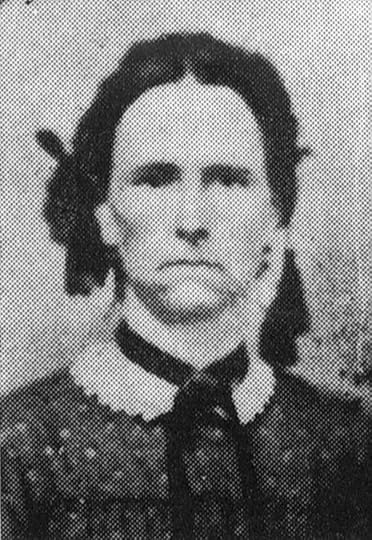 Melissa Lott. Image from Joseph Smith’s Polygamy.
Melissa Lott. Image from Joseph Smith’s Polygamy. In the Temple Lot Case in 1890s, the RLDS church (now the Community of Christ) contested the ownership of the temple lot in Independence, Missouri against the Church of Christ (known as Hedrickites). To prove their case, they needed to prove that they were the true heirs of Joseph Smith’s church and thus entitled to the property. The Utah-based LDS church also participated in this case to support the Hedrickites against their anti-polygamy rivals. Members of the LDS church provided testimony on Joseph Smith’s polygamy, as that was a key argument in who was the rightful successor of Joseph’s authority. The Temple Lot Case provides us with first-hand testimony from women who lived in polygamy with Joseph, under oath in a court of law.
From Melissa (Malissa) Lott’s testimony:
Q. Did you ever room with Joseph Smith as his wife?
A. Yes sir.
Q. At what place?
A. At Nauvoo
Q. What place in Nauvoo?
A. The Nauvoo Mansion.
Q. At what place in the Mansion?
A. Do you want to know the number of the room, or what?
Q. Well just what part of the house the room was in if you can give it?
A. Well I can give it and the number of the room too. It was room number one.
Q. Room number one?
A. Yes sir.
Q. Who else roomed there?
A. I don’t know of any one. . . .
Q. So you roomed with him [Joseph Smith] in the Nauvoo Mansion in room number one?
A. Yes sir. . . .
Q. How often did you room there with Joseph Smith?
A. Well that is something I can’t tell you.
Q. Well was it more than once?
A. Yes sir, and more than twice.
Melissa states, quite plainly, that she was Joseph’s wife and that she slept with him on more than one occasion. Her testimony goes on to say she slept with him in other locations as well, including her father’s house. She married Joseph at age eighteen while she worked in the Smith household.
 Emily Dow Partridge Smith Young. Image from Joseph Smith’s Polygamy.
Emily Dow Partridge Smith Young. Image from Joseph Smith’s Polygamy.In Emily Dow Partridge’s Temple Lot Case deposition, she shared, “[Joseph] came there into the room [in the Smith home] where I was one day, when I was in the room alone, and he asked me if I could keep a secret. I was about eighteen years of age then I think,-at any rate I was quite young[.] He asked me if I could keep a secret, and I told him I thought I could, and then he told me that he would some time if he had an opportunity,-he would tell me some thing that would be for my benefit, if I would not betray him, and I told him I wouldn’t.”
In Emily’s autobiography, “Incidents of the Early Life of Emily Dow Partridge,” she wrote, “I cannot tell all Joseph said, but he said the Lord had commanded [him] to enter into plural marriage and had given me to him and although I had got badly frightened he knew I would yet have him. So he waited till the Lord told him. My mind was now prepared and would receive the principles. . . . Well I was married there and then. Joseph went home his way and I going my way alone. A strange way of getting married wasent [wasn’t] it. Brother Kimball married us, the 4th of March 1843.” Her sister, Eliza, was also married to Joseph four days later, though neither sister knew the other was married to him at the time.
Emily also wrote of her conflict with Emma over this secret marriage and how she was re-married to Joseph to appease Emma, who thought she had handpicked the Partridge sisters as sister wives: “I was married to him on the 11th of May [1843], by Elder James Adams. Emma was present. She gave her free and full consent. She had always, up to this time, been very kind to me and my sister Eliza, who was also married to the Prophet Joseph with Emma’s consent, but ever after she was our enemy.”
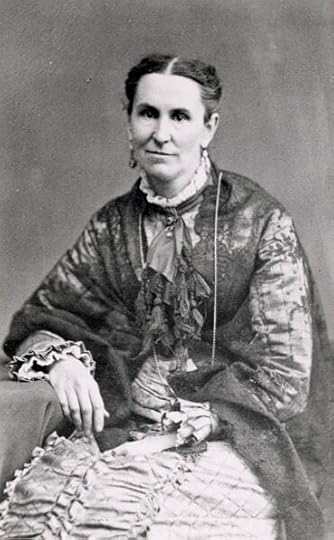 Helen Mar Kimball. Image from Joseph Smith’s Polygamy.
Helen Mar Kimball. Image from Joseph Smith’s Polygamy.Helen Mar Kimball was the youngest of Joseph’s wives, married at only age fourteen in a trade for her family’s salvation. She wrote in her journal of her father introducing her to polygamy: “I was skeptical — his only daughter, and I knew that he would not cast her off, and this was the only convincing proof that I had of its being right. I knew that he loved me too well to teach me anything that was not strictly pure, virtuous and exalting in its tendencies; and no one else could have influenced me at that time or brought me to accept of a doctrine so utterly repugnant and so contrary to all of our former ideas and traditions […] The next day the Prophet called at our house, and I sat with my father and mother and heard him teach the principle and explain it more fully, and I believed it, but I had no proofs, only his and my father’s testimony. I thought that sufficient, and did not deem it necessary to seek for any further.”
Later, she describes the reality of living as Joseph’s secret plural wife while only a child: “During the winter of 1843, there were plenty of parties and balls. … Some of the young gentlemen got up a series of dancing parties, to be held at the Mansion once a week. … I had to stay home, as my father had been warned by the Prophet to keep his daughter away from there, because of the blacklegs and certain ones of questionable character who attended there. … I felt quite sore over it, and thought it a very unkind act in father to allow [my brother] to go and enjoy the dance unrestrained with others of my companions, and fetter me down, for no girl loved dancing better than I did, and I really felt that it was too much to bear. It made the dull school still more dull, and like a wild bird I longed for the freedom that was denied me; and thought myself a much abused child, and that it was pardonable if I did murmur.”
In a poignant poem she penned about her conflicting feelings about plural marriage, Helen wrote:
“Thou dids’t not weigh the cost nor know the bitter price;
Thy happy dreams all o’er thou’st doom’d also to be
Bar’d out from social scenes by this thy destiny,
And o’er thy sad’nd mem’ries of sweet departed joys
Thy sicken’d heart will brood and imagine future woes,
And like a fetter’d bird with wild and longing heart,
Thou’lt dayly pine for freedom and murmor at thy lot;”
Her poem goes on to praise the celestial rewards she’ll receive, but concludes:
“I’d been taught to reveire the Prophet of God
And receive every word as the word of the Lord,
But had this not come through my dear father’s mouth,
I should ne’r have received it as God’s sacred truth.”
These are only three women of many who wrote about, shared testimony of, and were married polygamously to Joseph Smith in the 1840s. In order to deny that Joseph participated in polygamy or never had sex with his wives, you must directly erase these women’s words and lives. You must say that these women lied, were part of a vast conspiracy, or just ignore them as unimportant. By doing so you prioritize a man and his reputation over and against all the women he victimized. This is active harm and violence against women.
We’ve all read the newspaper stories of young men acquitted of rape charges because the judge “didn’t want to ruin his life.” We know stories of church members who received little to no punishment for sexual actions against women simply because they were “a good priesthood holder.” I’d hope you agree that this is despicable. How then is Joseph any different than these men? Just because he’s your favorite predator doesn’t mean he should get a pass.
Because this is exactly what polygamy deniers are doing––protecting and enabling a predator. It doesn’t matter that he lived over a century ago. His plural marriages were all nonconsensual. They were coerced through religious manipulation, spiritual threats, secrecy, and lies. His wives were survivors. Their story is built into the foundations of Mormonism and their trauma passes on to each generation so long as we can’t be honest about polygamy in either direction.
Polygamy conspiracists aren’t offering healing or answers; they’re further burying the truth so they don’t have to acknowledge the reality that the founder of Mormonism did bad things. It’s tempting to fall down the rabbit hole and clear Joseph so you can feel better about him. But weaving and defending a complicated conspiracy to make Joseph’s hands clean is no different than suggesting women frequently make up rape allegations. It’s the same as asking girls what they were wearing or hiding sexual misconduct to protect an institution or individual. It’s rape culture.
This is why this conspiracy matters. This is why I get so upset when I inevitably get comments on my posts about polygamy spouting this theory. At it’s heart, this conspiracy is about protecting men and patriarchy. It’s upholding unequal power structures that always give preference to men and their stories, whitewash their bad choices, and sweep women’s voices under the rug. Just like polygamy, denial theories boil down to power and optics. They’re designed to keep men in places of power and influence, while downgrading women into second-class roles. Polygamy turns women into objects that only matter when they prop up men’s lives and stories, just as denying it turns women into objects that only matter when they prop up the narrative of men that we want to tell.
If you believe that Joseph fought polygamy, we can get along and I can respect your right to believe that. But I will not confide in you my own survivor stories. I will not trust you as an ecclesiastical leader. I will not believe you when you call yourself a feminist, a girl’s girl, or pro-woman. Denying Joseph’s polygamy tells me that you don’t honor or care about women when put up against the life of a popular man. Saying Joseph never practiced polygamy actively feeds into rape apologetics that prioritize men’s personas over women’s bodies and trauma.
If you find yourself drawn to these conspiracies, maybe ask yourself why. Ask yourself how you can say you support and believe women while also denying Melissa, Emily, and Helen, who are telling you exactly what happened to them. Maybe ponder why you feel such a need to defend and support Joseph Smith over and above the broken bodies of women he left in his path. If you still want to believe this conspiracy, go ahead. But I and many other LDS woman know that you are not a safe person.



